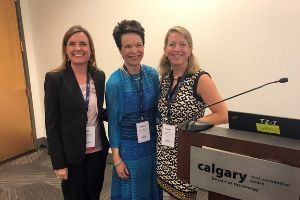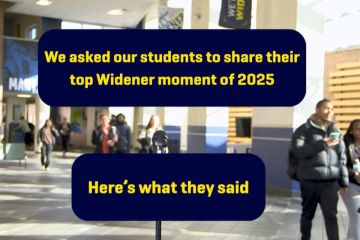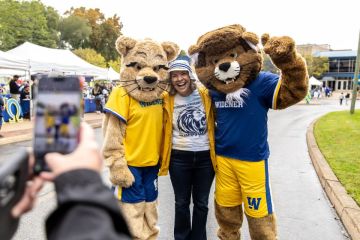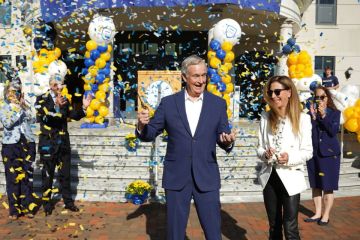Joining Forces to Reach New Findings

During her years serving in the U.S. Army, Brenda Elliott knew she would acquire the skills that have become synonymous with military service such as leadership, discipline and expertise. When she returned to civilian life after four years as an Army nurse, Elliott took her new skills and a passion for military nursing with her.
As she transitioned into civilian life, Elliott, a home health care nurse, enrolled in Widener’s nursing PhD program to make a positive impact on the military community, specifically to improve the civilian transition and transfer of knowledge for military nurses.
“I knew from my own personal experience as a military spouse that the deployment was much easier than the year after deployment, so I wanted to look at the year after these nurses came back from their service experience,” Elliott said.
What Elliott found at Widener, besides rigorous coursework and meaningful research projects, was a faculty mentor who would influence her education and her career.
Enter Professor Barbara Patterson.
The two women forged a mentoring relationship that has lasted nearly a decade, and has grown into a productive collaboration and now friendship. Together they have produced important research about veteran students and military nurses in an area where there was little.
The link between Elliott and Patterson illustrates the unique role student-faculty mentoring relationships play in the Widener student experience. They are relationships that forge between professors and students at all levels of study – from undergraduates to doctoral candidates, like Elliott.
In her years as a nursing PhD student, Elliott spent time researching how military knowledge and experience could best be transferred to education and civilian employment. It was important, given the growing number of veterans returning to U.S. classrooms. She wanted to provide nurse educators with the resources to understand the veteran experience and what they bring to the classroom, the clinical setting and to higher education.
After earning her doctoral degree from Widener in 2012, Elliott and her husband, an active military member, spent a number of years relocating on military assignments – a common but challenging aspect of life in military families. These changes made it difficult for her to join a nursing faculty and continue her research. She knew she needed an academic mentor she could partner with to meet her career goals, so she turned her attention back to Widener.
“I trusted Professor Patterson so I approached her,” Elliott said. “She coached me on the things that I needed to do to prepare myself better for a faculty position -- the degree wasn’t enough.”
Patterson, an experienced nurse scientist and nursing PhD program director, related to the research material on professional and personal levels. As the mother of a U.S. Marine Corps veteran, she knew through her son that some colleges and universities do not value the knowledge and lessons returning soldiers bring back from military service.
As a veteran “you’ve had this long, at minimum four years, history of going to school, learning and acquiring skills, so you’re not at the same point” as other students, according to Patterson.
With a clear mission, the pair teamed up for their first study in 2015. Since then, their professional relationship has strengthened, and their findings have contributed much-needed literature on what veterans add to higher education classrooms.
“They bring leadership skills, teamwork and professional values,” Patterson explained.
Their work also addressed stigmas often associated with veterans, namely Post-Traumatic Stress Disorder.
“Sometimes this population gets stereotyped a lot … and whether [a veteran] is your patient or in your classroom, they don’t need be categorized,” Elliott added.
Nearly five years after their first joint publication, Elliott and Patterson, along with Katie Chargualaf, a nurse faculty member at the University of South Carolina, have co-published more than five articles and will publish a book later this year.
The alumna-faculty duo continues to partner to reach new findings that will advance education opportunities for returning military members. For Elliott, serving those in uniform is the best way to show thanks and appreciation.
“This was my way of vicariously hearing their story and sharing their voice.”




